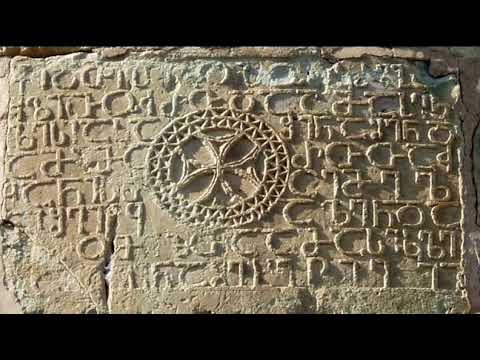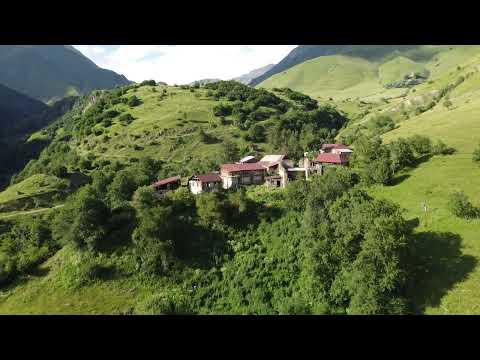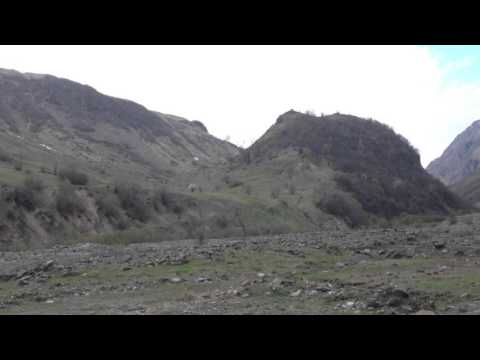Mtiuleti | Wikipedia audio article
This is an audio version of the Wikipedia Article:
Mtiuleti
Listening is a more natural way of learning, when compared to reading. Written language only began at around 3200 BC, but spoken language has existed long ago.
Learning by listening is a great way to:
- increases imagination and understanding
- improves your listening skills
- improves your own spoken accent
- learn while on the move
- reduce eye strain
Now learn the vast amount of general knowledge available on Wikipedia through audio (audio article). You could even learn subconsciously by playing the audio while you are sleeping! If you are planning to listen a lot, you could try using a bone conduction headphone, or a standard speaker instead of an earphone.
You can find other Wikipedia audio articles too at:
/ @wikipediatts983
You can upload your own Wikipedia articles through:
https://github.com/nodef/wikipedia-tts
"The only true wisdom is in knowing you know nothing."
- Socrates
SUMMARY
=======
Mtiuleti (Georgian: მთიულეთი; literally, "the land of mountains") is a historical province in eastern Georgia, on the southern slopes of the Greater Caucasus Mountains. It primarily comprises the White Aragvi Valley, and is bordered by Gudamakari on the east, Khando on the south, Tskhrazma on the west, and Khevi on the north. Mtiuleti occupies parts of modern-day districts of Dusheti and Kazbegi, Mtskheta-Mtianeti region (mkhare). A townlet (daba) Pasanauri, famous for its khinkali, is a traditional center of the region.
In its original and narrower sense, Mtiuleti comprises a small historic mountainous community called Tskhavati. Since the 13th century, the neighboring valleys of Khado and Gudamakari have also been frequently viewed as parts of Mtiuleti.
According to a historic tradition, St. Nino, a female baptizer of Georgians, preached Christianity here in the early 4th century. We next hear of Mtiuleti and its people in connection with the Georgian campaign by the Arab commander Bugha al-Kabir, whose army assaulted the mountains of Iberia/Kartli in the 850s, but failed to force the Mtiuletians into submission. In the subsequent centuries, the Mtiuletians remained loyal subjects to the Georgian crown and joined the expedition sent by Queen Tamar to subdue the rebellious mountainous clans in the early 13th century. Under Tamar, due its strategic location, Mtiuleti was placed under the administration of high-ranking Georgian officials such as Abulasan, a viceroy of Kartli, and Tchiaber, a chancellor of Georgia. Later, in the early 14th century, Mtiuleti was contested between two powerful feudal houses, the eristavis of the Ksani and the Aragvi. Initially supported by the kings of Georgia, the former prevailed, but for a short time. Eventual winners, the eristavs of Aragvi, ruled the area until being dispossessed by the king of Georgia in 1743. From May to September 1804, Mtiuleti was a scene of an uneasy revolt against Imperial Russia, which had annexed eastern Georgia in 1801. The uprising quickly spread to the neighboring mountainous regions, but was eventually suppressed by the Russian commander Pavel Tsitsianov after heavy fighting.
wikipedia tts-ის სხვა ვიდეოები
 05:14
05:14
Principality of Svaneti | Wikipedia audio article
 24:42
24:42
Eduard Shevardnadze | Wikipedia audio article
 00:59
00:59
Bolnisi cross | Wikipedia audio article
 01:08
01:08
Georgian Stock Exchange | Wikipedia audio article
 02:29
02:29
Lazica | Wikipedia audio article
 04:34
04:34
Akhalkalaki | Wikipedia audio article
 00:51
00:51
Samachablo | Wikipedia audio article
 01:34
01:34
Dzala ertobashia | Wikipedia audio article

მსგავსი ვიდეოები

Georgian Restaurant Food: Beef Khinkali Recipe - Village Gue...
Golden Hands Cooking

მოგზაურობა ხადას ხეობაში (მთიულეთი) | Georgia - Khada's Kheo...
Valeri Qasoevi

ცეკვა “მთიულური” | Грузинский танец «Мтиулури» | Georgian da...
Ensemble Tbilisi

ხადას ხეობა | Khada Gorge | Spend your summer in Georgia
Be Traveler • იყავი მოგზაური

mtiuleti - მთიულეთი .. 14 დეკემბერი 2013.. ♥
Oci Lat

Mtiuleti, Mt. Sherkhota/მწ. შერხოთა, მთიულეთი
kbiltsetskhla

GEORGIA/MTIULETI/XADA’S RAVINE, საქართველო/მთიულეთი/ხადა (MI...
MIXED

Ghuda, white (Mtiuleti) Aragvi valley/ღუდის ხეობა, მთიულეთი
kbiltsetskhla